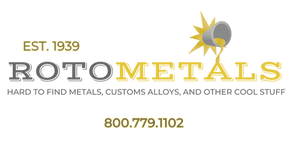Zinc Roofing FAQ
Advantages of Zinc In Architectural Applications
- ZINC is aesthetically pleasing.
- ZINC is highly formable.
- ZINC is extremely durable.
- ZINC is corrosion resistant.
- ZINC requires very low maintenance.
- ZINC is self-healing.
- ZINC is 100% recyclable and environmentally friendly.
- ZINC is a very Green Product compared to other metals because of its lower melting point thus takes less energy to produce then galvanized sheet metal, aluminum or copper.
Zinc Roofing Throughout History
Zinc roofing was first used in the United States in 1816. Though its popularity was cyclic over the following decades, zinc roofing has become the most popular form of roofing in Europe, covering approximately 70% of residential buildings. Zinc roofing strips are today an architect's favorite roofing material, as they are versatile in use, appearance, and application. Many people are slowly discovering the great advantages of zinc roofing as its popularity increases
The Advantages of Zinc Roofing
To begin with, zinc roofing is an optimum investment, as it is able to resist corrosion by naturally developing its own protective patina. This distinctive patina also provides durability, and together these features allow a zinc roof to live for about 100 years in a rural environment, 4 times that of steel roofing. What's more, this patina will also allow zinc roofing to self-repair imperfections and scratches, and eliminate the need for a coating or varnish and regular maintenance. Zinc roofing strips are highly malleable and can adopt any shape, including low radius curves and complex shapes unachievable with other materials, allowing for great freedom of design. Zinc roofing is also a natural material and can be recycled indefinitely, making your building environmentally friendly. The only possible downside of applying zinc roofing strips is that they are initially quite expensive.
Installing Zinc Roofing
Although the actual application of zinc roof strips is simple, zinc roofing necessitates that your building meet certain requirements, including geometrical continuity, project structural conformity, and physico-chemical compatibility. For this you will need a thorough roof inspection, to determine what must be done in order to meet such requirements, and install the zinc roofing accordingly. Not complying with these factors can lead to serious damage, which is why you will need professional zinc roofing installation by a zinc roofing expert.
RotoMetals also stocks "SOFT ZINC" - perfect for all your flashing needs.
Click here to purchase our complete sample pack, which offers a sample of every thickness and color option available from us plus information about our Reward Program. If you would like a smaller set of samples for free, click here. Please be sure to specify which three pieces you would like a sample of.
When you want to create easy connections to chimneys, roof dormers, and walls, ROTOZINC Soft Zinc provides the flexibility and malleability you need for faster installation. Soft Zinc is an environmentally friendly product that's 100% recyclable with no toxic runoff.
RotoMetals offers 44"+ wide master coils of any length you need, and we have pup coils in 8", 12", and flat sheets as well. Custom widths are available upon request for a slit-fee charge.
Q. What is Soft Zinc?
A. Soft Zinc is the environmentally correct solution for replacing lead flashing. If you're a contractor, installer, or roofer and you're not using Soft Zinc, you're missing an opportunity to sell your clients an eco-friendly, cost-saving option on their roofing projects.
Q. What are the benefits of using Soft Zinc?
A. Many...here's a few:
- Easily shaped, folded and soldered.
- Soft quality for complex roofing connections.
- Light weight.
- Easy to handle, no gloves needed.
- Ecologically superior alternative to lead.
- It's light weight makes it less expensive and easier to use than lead. A roll of Soft Zinc weighs 17 lbs. vs. 50 lbs. for a roll of lead.
Q. Where can I use it?
A. Soft Zinc can be used as flashing for most clay tile roofs, slate roof, asphalt roof, and wood shake roofs. It makes a superior connection to masonry brickwork because it lasts longer than lead and prevents costly masonry repairs when gutters have to be replaced. Lead flashing deteriorates with age (if 15 lb. lead is used, this could be only a few years) and eventually cracks.
There are no products listed under this category.
